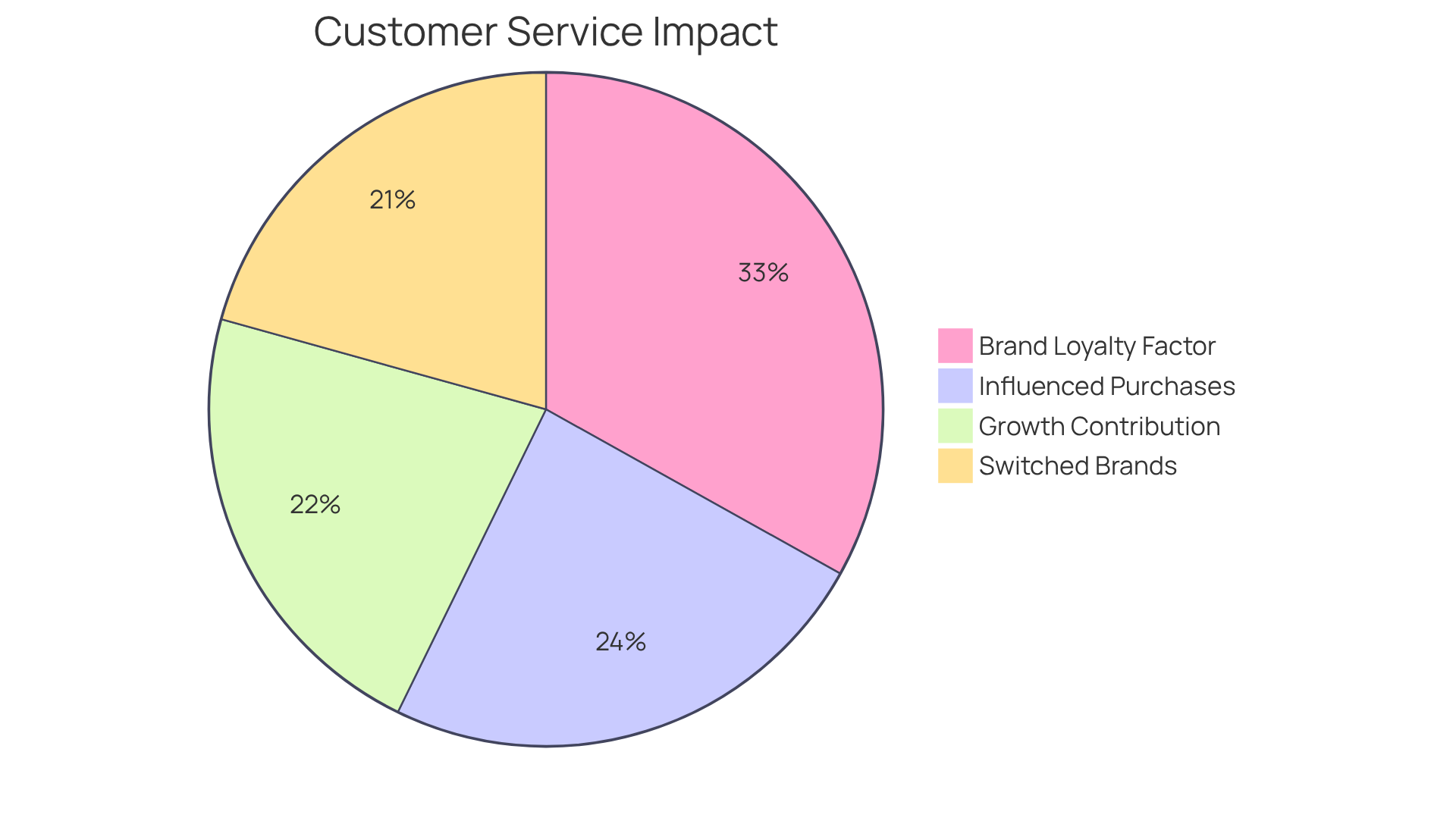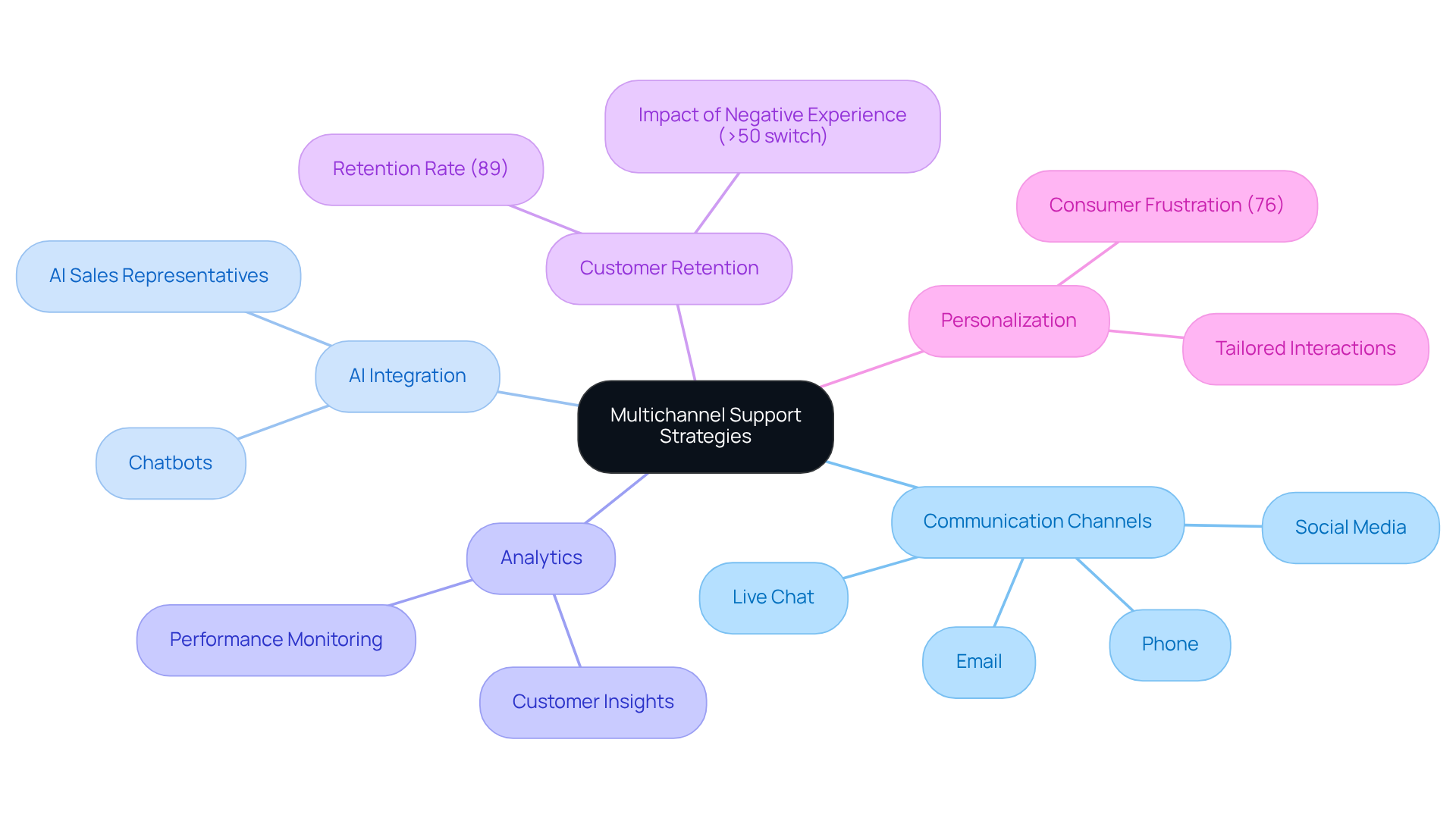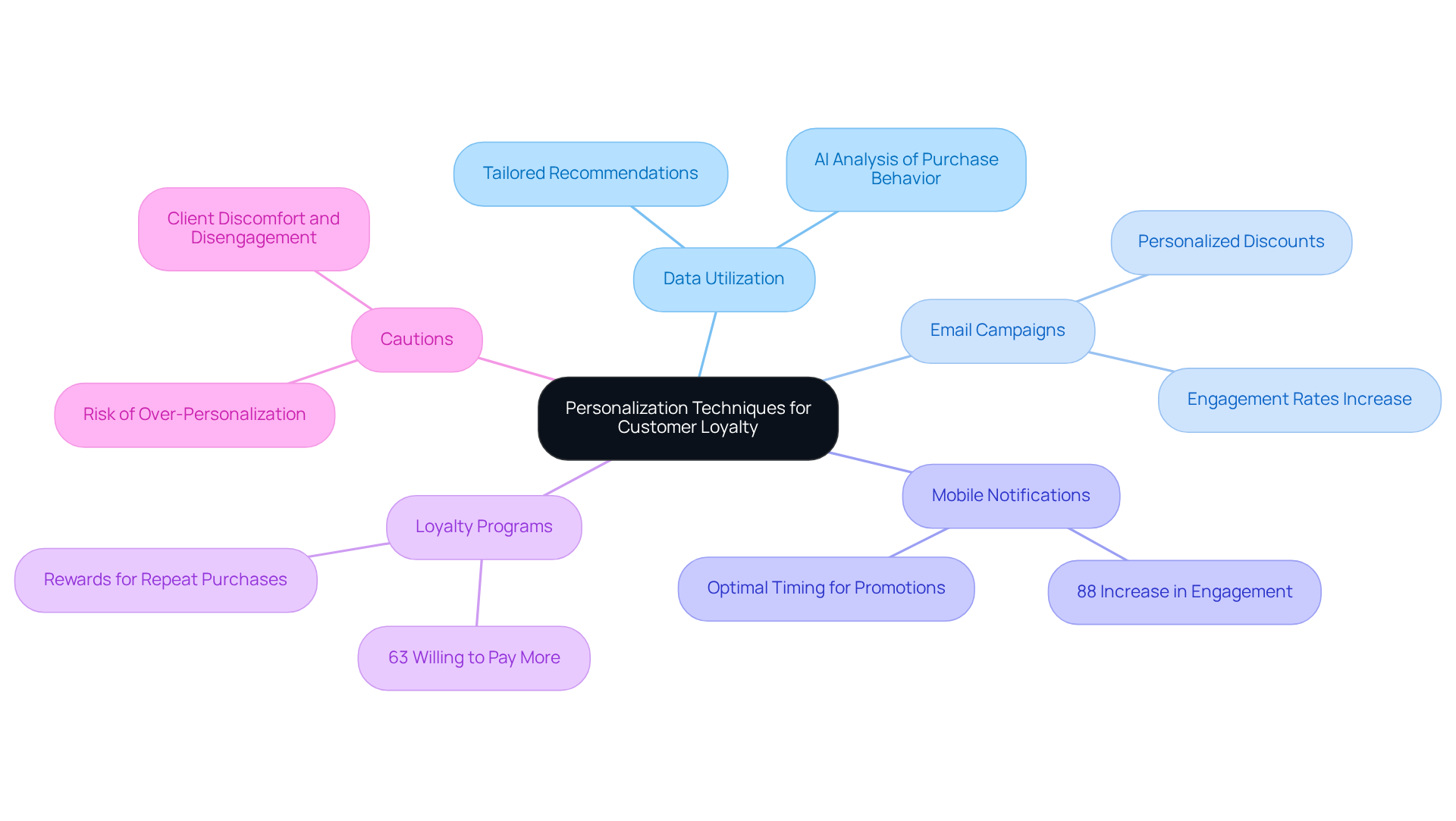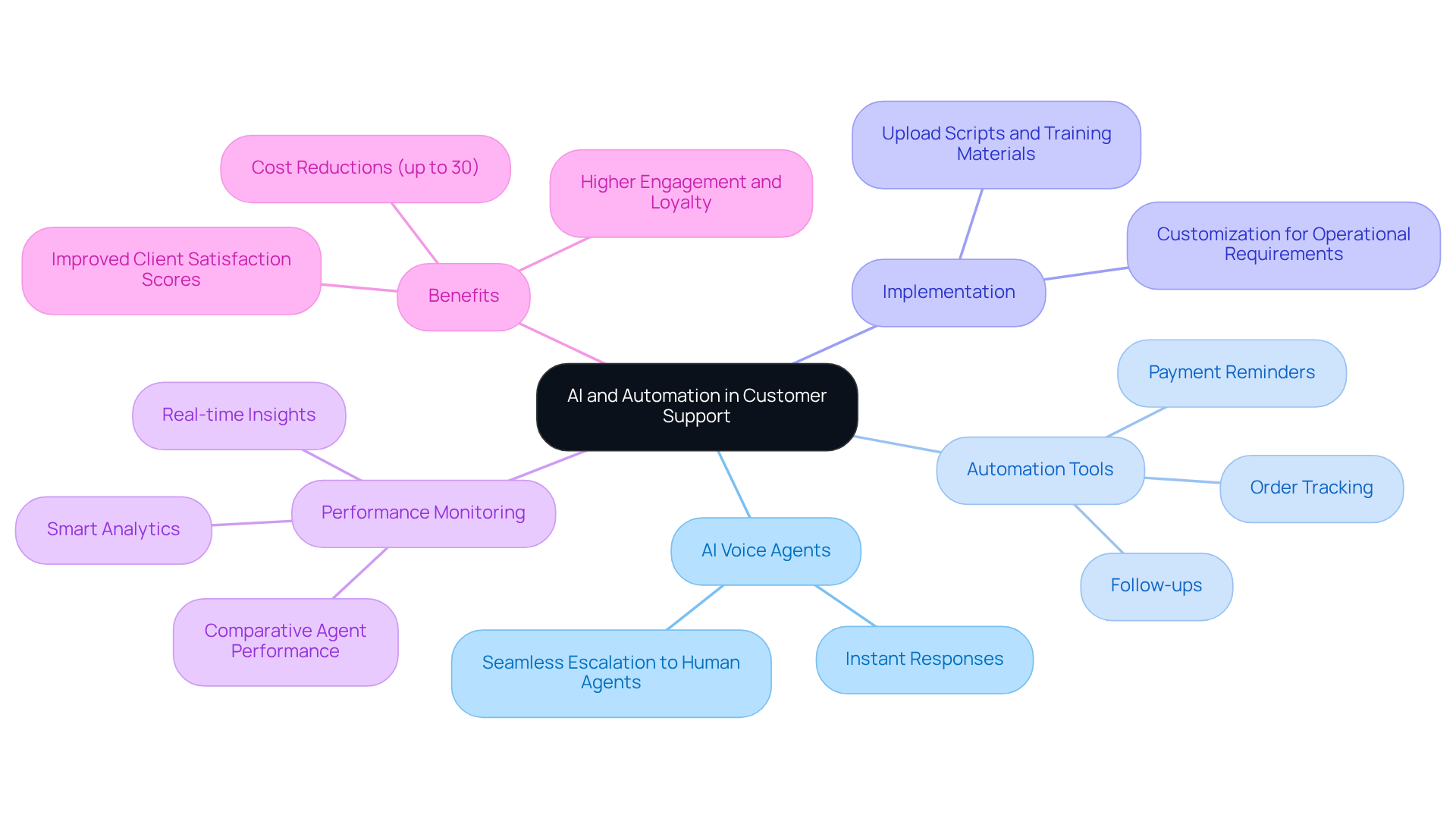Overview
Ecommerce customer care can be significantly elevated through the integration of AI and personalization strategies, which enhance customer engagement and loyalty. This approach not only automates support processes but also tailors experiences based on consumer data. As a result, businesses can expect improved customer satisfaction and retention rates, which are crucial in a competitive online marketplace. By leveraging AI tools, companies position themselves to thrive, fostering deeper connections with their customers and standing out in an increasingly crowded market.
Introduction
Ecommerce customer care has established itself as a cornerstone of the online shopping experience, where the caliber of support can significantly influence a brand's reputation. As consumers navigate a saturated digital marketplace, the integration of AI and personalized strategies presents businesses with a distinctive opportunity to elevate customer satisfaction and loyalty. However, with the stakes higher than ever, the pressing question remains: how can companies effectively leverage these tools to not only meet but exceed customer expectations?
Define Ecommerce Customer Service and Its Importance
Ecommerce customer care plays a pivotal role in the online shopping journey, providing essential support to clients before, during, and after their purchases. This includes , resolving issues, and delivering product information. The importance of online retail support cannot be overstated; it has a direct impact on client satisfaction, retention, and loyalty to the brand. In a competitive online marketplace where consumers have numerous options, exceptional support can set a company apart and foster enduring relationships.
Research indicates that:
- 70% of shoppers have made purchases influenced by positive support experiences, underscoring its vital role in driving sales and enhancing corporate reputation.
- A striking 96% of participants consider client support as a key factor in brand selection and loyalty, reinforcing its essential function in ecommerce.
Case studies, such as 'Building Customer Trust,' illustrate that businesses prioritizing client relations witness substantial improvements in conversion rates and customer loyalty. This reinforces the idea that outstanding support, or ecommerce customer care, is not merely an enhancement but a core element of effective strategies.
Moreover,
- 64% of industry leaders believe that client support directly contributes to their organization's growth.
- 60% of consumers have switched brands due to poor service.
These statistics highlight the significant consequences of neglecting this critical aspect of business. In conclusion, investing in ecommerce customer care is not just beneficial; it is imperative for long-term success in the digital marketplace.

Explore Multichannel Support Strategies for Enhanced Customer Engagement
To enhance client engagement, ecommerce customer care must implement multichannel support strategies that facilitate interactions across various platforms, including social media, email, live chat, and phone. This approach guarantees that clients receive reliable and prompt ecommerce customer care support, regardless of the channel they choose.
Intone's AI sales representatives can be deployed effortlessly with a simple script, enabling enterprises to assist clients after hours or during peak times without delays. By integrating chatbots on websites and social media, organizations can improve ecommerce customer care by providing immediate responses to frequent inquiries, while email support can address more complex issues.
Furthermore, Intone's intelligent analytics empower enterprises to customize how their AI agents interact with clients, establishing data sources, call transfer protocols, and post-call reporting for enhanced engagement. Utilizing customer relationship management (CRM) systems alongside Intone's solutions allows organizations to , fostering personalized follow-ups and enhancing ecommerce customer care.
Research indicates that companies with robust multichannel strategies achieve an impressive retention rate of 89%, compared to only 33% for those employing less effective methods. Additionally, 76% of consumers express frustration when personalized interactions are absent, underscoring the necessity for personalization in multichannel strategies. Moreover, over 50% of consumers are inclined to switch to a competitor after a single negative experience, highlighting the critical importance of consistent branding and messaging across channels.
As Courtney Samok emphasizes, leveraging diverse sales channels is essential for maximizing the effectiveness of your strategy. Real-time insights from Intone's analytics further empower businesses to monitor performance and refine their engagement strategies.

Implement Personalization Techniques to Foster Customer Loyalty
Implementing personalization techniques is essential for promoting loyalty among clients in ecommerce customer care. Businesses can utilize client data to customize recommendations, marketing messages, and shopping experiences. For instance, AI algorithms can analyze past purchase behavior to suggest products that align with individual preferences.
Furthermore, personalized email campaigns that address individuals by name and provide tailored discounts significantly enhance engagement rates. Research indicates that mobile push notifications can increase app engagement by up to 88%, underscoring the importance of personalized communication strategies. According to a study by McKinsey, personalized experiences can generate 40% more revenue for companies.
Additionally, developing loyalty programs that reward repeated purchases can improve retention and promote brand advocacy, with 63% of consumers willing to pay more to shop with brands they are devoted to. However, companies should be cautious of excessive personalization, which can lead to client discomfort and disengagement.
Case studies, such as those from Hims & Hers, demonstrate that a focus on personalization can drive substantial revenue growth, with reported increases of over 110.6% year-over-year attributed to their emphasis on personalized solutions. This not only enhances client satisfaction but also strengthens long-term connections with consumers.

Leverage AI and Automation for Efficient Customer Support
Ecommerce enterprises have a unique opportunity to significantly enhance ecommerce customer care efficiency through the strategic use of AI and automation. Intone's 24/7 AI voice agents stand ready at just one click, expertly designed to handle routine inquiries. These agents deliver instant responses while seamlessly escalating complex issues to human agents when necessary. This approach not only reduces wait times but also allows human agents to focus on more intricate client needs.
With effortless implementation, businesses can simply upload their scripts and training materials, enabling Intone to specifically for their operational requirements. Furthermore, automation tools optimize processes such as order tracking, payment reminders, and follow-ups, ensuring clients receive timely updates.
Intone's smart analytics and real-time insights empower companies to monitor performance, compare agents, and gain actionable insights, thereby enhancing overall service quality. Companies that have integrated Intone's AI solutions report operational cost reductions of up to 30%, alongside improved client satisfaction scores.
By embracing these advanced technologies, eCommerce companies can cultivate a more responsive and efficient ecommerce customer care system, ultimately driving higher engagement and loyalty.

Conclusion
Ecommerce customer care stands as a cornerstone of successful online retail, directly influencing customer satisfaction, loyalty, and ultimately, sales. The integration of AI and personalization strategies within customer support not only enhances the shopping experience but also establishes lasting relationships with consumers, setting brands apart in a competitive landscape.
Key insights from the article highlight the importance of multichannel support strategies that ensure consistent and personalized interactions across various platforms. Statistics reveal that companies employing robust multichannel approaches experience significantly higher retention rates. Additionally, personalization techniques, such as tailored recommendations and loyalty programs, drive customer engagement and revenue growth. Furthermore, leveraging AI and automation can streamline support processes, reduce operational costs, and improve service quality, ultimately leading to a more responsive customer care system.
In light of these findings, it is evident that prioritizing ecommerce customer care through AI and personalization is not merely a trend but a necessity for businesses aiming for sustained success. As the digital marketplace continues to evolve, embracing these strategies will empower companies to meet and exceed consumer expectations, fostering loyalty and driving growth in an increasingly competitive environment.
Frequently Asked Questions
What is ecommerce customer service?
Ecommerce customer service refers to the support provided to clients throughout their online shopping journey, including assistance before, during, and after purchases, addressing inquiries, resolving issues, and delivering product information.
Why is ecommerce customer service important?
Ecommerce customer service is crucial as it directly impacts client satisfaction, retention, and brand loyalty. Exceptional support can differentiate a company in a competitive online marketplace and foster long-lasting relationships with customers.
How does customer service influence purchasing decisions?
Research shows that 70% of shoppers have made purchases influenced by positive support experiences, highlighting the vital role customer service plays in driving sales and enhancing a company's reputation.
What percentage of consumers consider customer support a key factor in brand loyalty?
A striking 96% of participants consider customer support as a key factor in brand selection and loyalty, reinforcing its essential function in ecommerce.
What are some consequences of poor customer service?
Statistics indicate that 60% of consumers have switched brands due to poor service, emphasizing the significant negative impact of neglecting customer support.
How does investing in customer service benefit businesses?
Investing in ecommerce customer care is imperative for long-term success, as 64% of industry leaders believe that client support directly contributes to their organization's growth.
Are there examples of successful ecommerce customer service?
Case studies, such as 'Building Customer Trust,' show that businesses prioritizing client relations experience substantial improvements in conversion rates and customer loyalty, indicating that outstanding support is a core element of effective strategies.






